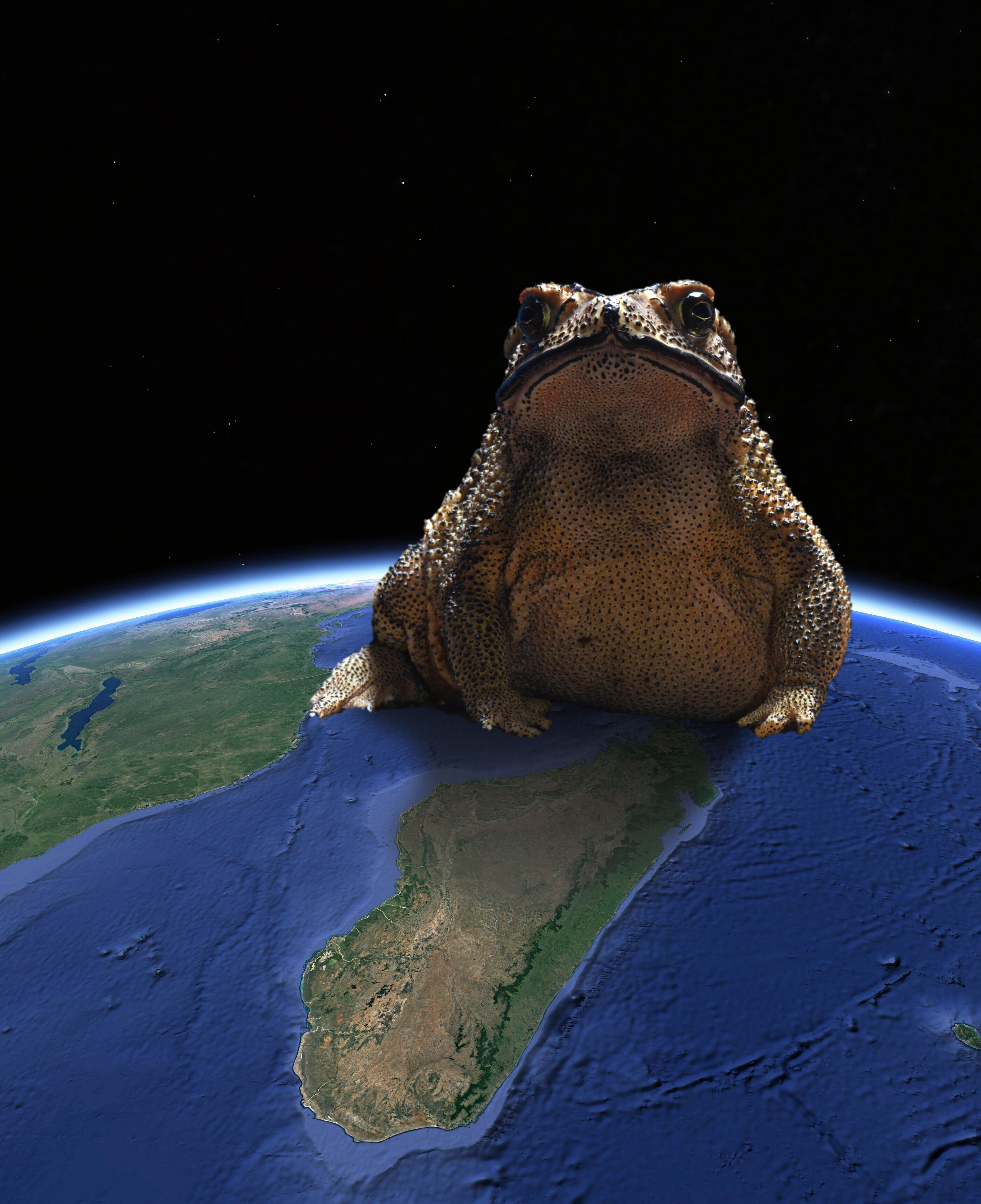
LSTM’s Dr Nick Casewell has been involved in study led by Bangor University which confirms the potential damage that non-native, invasive, Asian Toads could cause in Madagascar.
In a paper published in the journal Current Biology conservationists confirm that unless swift control measures are put in place the non-native toad, which likely arrived as an accidental “stow-away”, could cause havoc on the island, home to many unique species. An international team of biologists from Bangor University, LSTM, the University of Braunschweig and the Natural History Museums of Munich, Stuttgart and Turin, have confirmed that native Madagascan animals lack the mutations, seen in animals that prey on the toad in its native Asia, needed to withstand the toxin. Therefore, any Malagasy predator that ingests a toad is likely to be poisoned.
This study follows on from the team’s previous work where they described how some animals, which had co-existed with poisonous toads for millions of years, had evolved resistance to their toxins, and thus were able to eat them without suffering any ill effects. They found that in all cases resistance was underpinned by a couple of genetic alterations to one protein that the toxins target. Using this information, they investigated whether any of Madagascar’s vertebrates had the same types of alterations that might render them resistant to the toxins harboured by the invasive toads.
Dr Casewell said: “We show that much of the native vertebrate fauna of Madagascar is likely to be poisoned if they try and feed on the toxic invasive toads. This is worrying, because many of Madagascar’s iconic species are already vulnerable, due to other factors, such as deforestation. Our findings re-emphasise the importance of robustly controlling the spread of these invasive toads to limit their impact on one of the world’s most unique biodiversity hotspots.”
The project was jointly conceived by Dr Casewell and Dr Wolfgang Wüster of Bangor University, who is senior author on the paper. Dr Wüster said: “There has been vigorous debate on the likely impact of the invasive toads and the lengths we should go to in our efforts to control or eradicate them. The fear is that the toads will send shockwaves through the entire ecosystem: the presence and spread of the Asian toads could threaten many endemic predators as they are poisoned by eating the toads, and in turn their prey, such as rodents, could increase in numbers.”
“Control of the spread of Asian toads should now become a significant conservation priority and should receive appropriate resources. Our findings mean that conservation priorities and resources can now be allocated based on robust data rather than supposition.”
Bangor University Masters student Ben Marshall, who worked on this project for his degree, said:
“This is another example of how species introduced from one part of the world to another can disrupt natural ecosystems. Preventing the introduction of alien invasive species must be a top priority for biodiversity conservation, and should be a key consideration for all international transport of goods that could deliberately or inadvertently result in alien species getting established outside of their range.”
Nature conservation managers should seriously take into consideration a program of local control of toad populations, assuming that a full eradication from Madagascar is already impossible.
Widespread vulnerability of Malagasy predators to the toxins of an introduced toad
Benjamin Michael Marshall, Nicholas R. Casewell, Miguel Vences, Frank Glaw, Franco Andreone, Andolalao Rakotoarison, Giulia Zancolli, Friederike Woog, Wolfgang Wüster
Current Biology Volume 28, Issue 11, 4 June 2018, Pages R654–R655 https://doi.org/10.1016/j.cub.2018.04.024